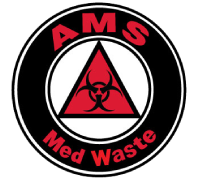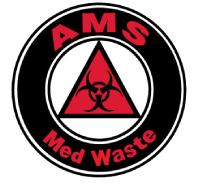In Northern Illinois, the day-to-day operations of hospitals, clinics, and medical offices pile up significant amounts of healthcare waste. It’s no small matter – managing this waste effectively is a pressing concern that can’t be ignored. It’s not just about keeping the premises clean, but it’s also a matter of public health, environmental safety, and regulatory compliance. So, it’s high time we roll up our sleeves and delve into the exploration of efficient and responsible strategies for disposing of healthcare waste. Ultimately, our goal is to ensure the well-being of our community and the sustainability of our planet.
Types of Healthcare Waste
General Waste:
This type of waste constitutes approximately 85% of the total waste generated in hospitals, as per World Health Organization estimates. General waste typically includes items that pose no particular risk to humans or the environment. This category might include papers, wrappers, food waste, and other non-medical items that are regularly discarded in a healthcare setting. AMS does not handle general waste as it is typically handled through normal waste disposal companies.
Special Waste:
The remaining 15% of hospital waste is categorized as Special Waste. This waste can further be divided into several subcategories:
Potentially Infectious Medical Waste:
This includes waste contaminated with blood and other bodily fluids (e.g., from used bandages, gloves, cultures, and swabs), as well as waste from patients with infections.
Hazardous Waste:
This includes waste that has been listed as hazardous under RCRA guidelines or has one of these four characteristics: Ignitability, Corrosivity, Reactivity, or Toxicity.
Sharps:
This category comprises items that can cause cuts or puncture wounds, including needles, scalpels, and broken glass.
Pharmaceutical Waste:
This includes expired, unused, and contaminated drugs and vaccines.
Chemical Waste:
This category includes discarded solid, liquid, and gaseous chemicals from diagnostic and experimental work and disinfection procedures.
Radioactive Waste:
This includes waste products that contain radioactive substances, such as from cancer treatment and medical imaging.AMS Med Wase does not handle radioactive waste.
Risks Associated with Improper Healthcare Waste Disposal
Improper disposal of healthcare waste can lead to severe consequences. Besides environmental pollution, the spread of infectious diseases, and exposure to toxic substances, there are also significant financial implications. Regulatory fines for improperly disposed medical waste can be substantial, acting as a deterrent for hospitals and healthcare facilities.
Choosing the Right Partner
Choosing to partner with reputable service providers specializing in medical waste management can prove to be an effective strategy for hospitals. These companies possess the necessary expertise and resources to manage healthcare waste appropriately, ensuring strict compliance with both local regulations and international standards.
A reliable service provider not only guarantees proper waste disposal but also significantly reduces a hospital’s liability risk. Moreover, partnering with a trusted waste management service provider ensures a safer environment for both patients and staff. By adhering to proper disposal methods, the risk of exposure to hazardous substances is minimized. This adherence provides a safer working environment for healthcare staff and fosters a healthier space for patients, reducing the possibility of infections or diseases due to improper waste handling.
Choose AMS MedWaste for Streamlined Healthcare Waste Management
At AMS MedWaste, we’re not just a service provider – we’re your partner in ensuring effective healthcare waste management. We recognize the significant role that waste management plays in healthcare settings and are dedicated to providing comprehensive, eco-friendly solutions. Our expertise extends to the disposal of medical waste, sharps, pharmaceuticals, and chemotherapy waste. Additionally, we also offer compliance training.
Our reach spans Northern Illinois and Southern Wisconsin, where we are committed to safe and responsible practices. One of our standout initiatives is the conversion of medical waste into fuel, ensuring it never finds its way to a landfill.
We value flexibility and customization, offering schedules that are tailored to fit your specific needs. Our professional collection services are coupled with competitive pricing, making us a cost-effective alternative to larger competitors.
Choosing AMS MedWaste means securing a safer working environment for your team and creating a healthier space for your patients. Don’t just opt for a service provider; choose a partner who prioritizes secure, practical solutions for healthcare waste management. Make the right choice today – reach out to AMS MedWaste.






